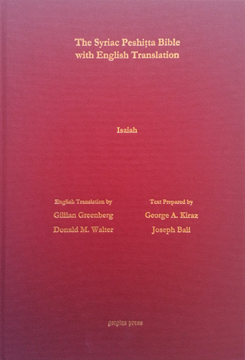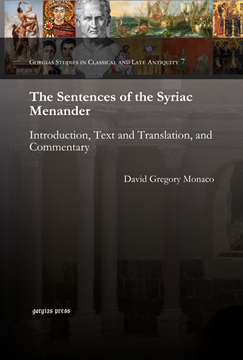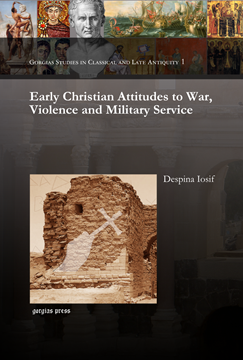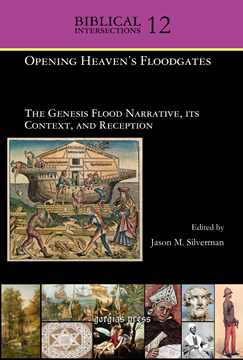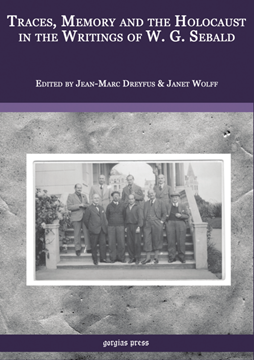The Jewish Dialect of Zakho
By Eran Cohen
Series: Gorgias Neo-Aramaic Studies 13
ISBN: 978-1-60724-048-8
This monograph provides an extensive syntactic description of the rather well-known but not previously described Jewish Neo-Aramaic dialect of Zakho. The description covers both microsyntax, namely, syntactic relationships within the confines of the sentence: the predicative link, the attributive and completive relationships, and apposition.
$203.00 (USD) $121.80 (USD)
The Book of Isaiah According to the Syriac Peshitta Version with English Translation
English Translation by Gillian Greenberg & Donald M. Walter; Text Prepared by George Anton Kiraz & Joseph Bali
Series: Surath Kthob 21
ISBN: 978-1-4632-0155-5
A new English translation of the Syriac Peshitta along with the Syriac text carried out by an international team of scholars. Greenberg and Walter have produced an annotated translation of the Peshitta version of the Book of Isaiah, while Kiraz and Bali have edited the Peshitta text. The English translation and the Syriac text are shown on facing pages so that both can be studied together.
$150.00 (USD) $90.00 (USD)
The Sentences of the Syriac Menander
Introduction, Text and Translation, and Commentary
ISBN: 978-1-61143-488-0
The Sentences of the Syriac Menander appears in two Syriac manuscripts in the British Library, a full version in one codex, and a far shorter version, only a small fraction thereof, in another. This book presents a commentary on the text in its complete version focusing on parallels from both Jewish tradition and the Greco-Roman world, showing that the text is not, as it claims, the work of the Greek author Menander, but rather a work of Jewish Wisdom Literature composed in Syriac, possibly in the ancient city of Edessa itself, and preserved within Christian monastic circles.
$149.00 (USD) $89.40 (USD)
Early Christian Attitudes to War, Violence and Military Service
ISBN: 978-1-61143-486-6
The early Christians were not of one mind when it came to war, violence and military service. There was a bewildering variety of opinion as to how they understood their place in the world. It seems however that generally they did not stand apart from society. On the contrary, they were happy to integrate and conform and they often accepted war and service in the army as activities which did not raise specific ethical problems.
$182.00 (USD) $109.20 (USD)
Opening Heaven's Floodgates
The Genesis Flood Narrative, its Context, and Reception
Edited by Jason M. Silverman
Series: Biblical Intersections 12
ISBN: 978-1-61143-894-9
The narrative of Noah’s flood in Genesis draws perennial interest from scholars and the general public. Too often, however, historical and exegetical studies of the text, the story’s reception, and discussion of theological appropriation remain aloof from each other, if not at odds. This volume takes the influential nature of the flood story as an ideal opportunity to bring some of these methods into dialogue.
$218.00 (USD) $130.80 (USD)
Traces, Memory and the Holocaust in the Writings of W.G. Sebald
Melilah Supplement 2
Edited by Jean-Marc Dreyfus & Janet Wolff
ISBN: 978-1-61143-223-7
A multidisciplinary study of W.G. Sebald's concerns in German-Jewish history, traces, displacement, and memory of an evocative past, as can be found in his writings on the city of Manchester.
$65.00 (USD) $39.00 (USD)

